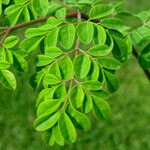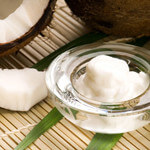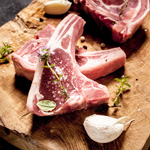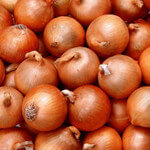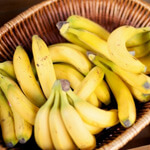 Though it might not be as well-known as iron or calcium, potassium is an essential nutrient that plays numerous roles in the human body. For example, it regulates water balance, thus controlling the amount of fluids that we retain or excrete. It also contributes to metabolism and other biochemical reactions, maintains electrolyte balance, and boosts the functioning of the nervous system. People who are deficient in potassium tend to suffer from weakness, lethargy, loss of appetite, and muscle cramps.
Though it might not be as well-known as iron or calcium, potassium is an essential nutrient that plays numerous roles in the human body. For example, it regulates water balance, thus controlling the amount of fluids that we retain or excrete. It also contributes to metabolism and other biochemical reactions, maintains electrolyte balance, and boosts the functioning of the nervous system. People who are deficient in potassium tend to suffer from weakness, lethargy, loss of appetite, and muscle cramps.
For this reason, it’s important that we get enough potassium in our diets. Below is a list of potassium-rich foods that can help remedy any deficiencies we might have.
Foods Rich in Potassium
Bananas – Though there are other foods with higher concentrations of potassium than bananas, these sweet yellow fruits are undoubtedly the best-known sources of it. One average-sized banana provides us with a respectable 422 milligrams of potassium, which is 11 percent of the 4,700 milligrams that adults are expected to receive daily. Bananas are also a great source of natural energy, rich in vitamin C, and contain a rare amino acid, tryptophan, which improves mood.
White beans – Despite their humble size, white beans (also called common beans or string beans) are one of the greatest sources of potassium in the world. In fact, just one cup (179 grams) of cooked white beans provides us with 1,004 milligrams of potassium, or 29 percent of our recommended daily intake. Other high-potassium beans include lima beans (28 percent), kidney beans (20 percent), and pinto beans (18 percent).
Avocados – Though avocados are best-known for their impressive monounsaturated fat content, these strange-looking green fruits are also bursting with potassium. One avocado (201 grams) provides us with around 975 milligrams of it, or 28 percent of our RDI. That’s more than double the amount of potassium provided by the average banana!
Baked potatoes – White potatoes receive so much abuse in the natural health world that people often forget that they contain large amounts of important nutrients, including vitamin C, several B vitamins and… potassium. One baked potato with skin, in fact, contains an amazing 926 milligrams of potassium, or 26 percent of our RDI.
Chard – Leafy green vegetables tend to be high in potassium, but chard is the king of them all. One cup of cooked chard (180 grams) contains a whopping 839 milligrams of potassium, or 24 percent of our RDI. Other greens rich in potassium include kale (8 percent) and collards (6 percent). Spinach, cabbage, and some lettuce varieties (especially iceberg and romaine lettuces) also contain varying levels of it.
Baked acorn squash – Like the potato, the acorn squash is another vegetable that manages to retain its high potassium levels when cooked. One cup of this winter squash, also called the Des Moines squash or pepper squash, contains approximately 899 milligrams of potassium, or 26 percent of our RDI. If you’re deficient in potassium, trying stuffing a baked acorn squash with other potassium-rich vegetables for one big potassium fix!
Salmon – Compared to most fruits and vegetables, meat isn’t a great source of potassium. One 3-ounce fillet of salmon, however, does contain a decent 534 milligrams of it – or 15 percent of our RDI. Other types of fish that contain similar levels of potassium include pompano, lingcod, halibut, yellowfin tuna, anchovies, mackerel, and herring.
White mushrooms – One cup of sliced mushrooms contains 428 milligrams of potassium, or 12 percent of our RDI. They’re also rich in vitamin D and several trace minerals and even contain compounds that suppress aromatase, an enzyme that can cause certain cancers.
Other foods that contain decent concentrations of potassium, but not enough to make the above list, include: yogurt, dried herbs, rice bran, most nuts and seeds, sun-dried tomatoes, and Brussels sprouts.


